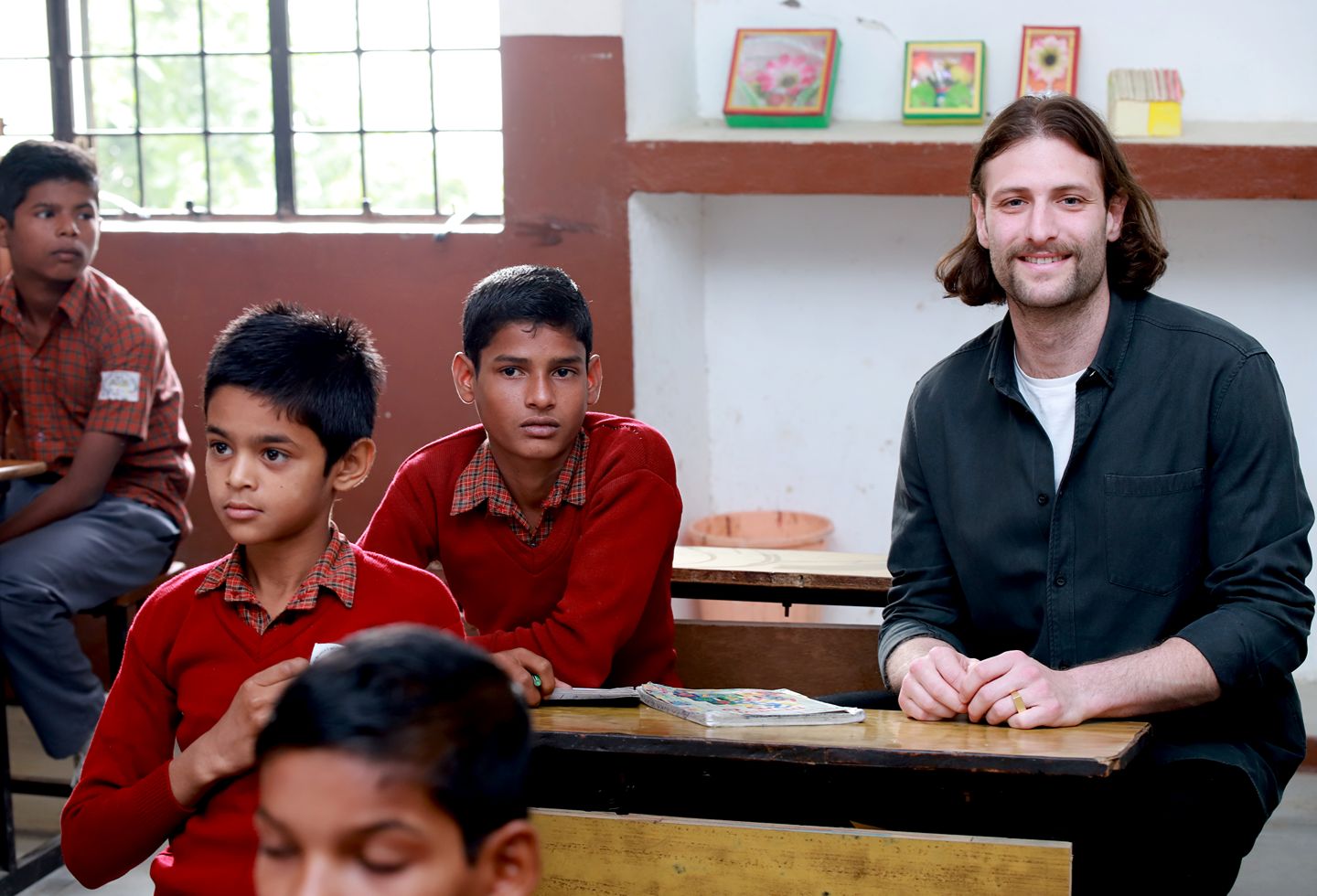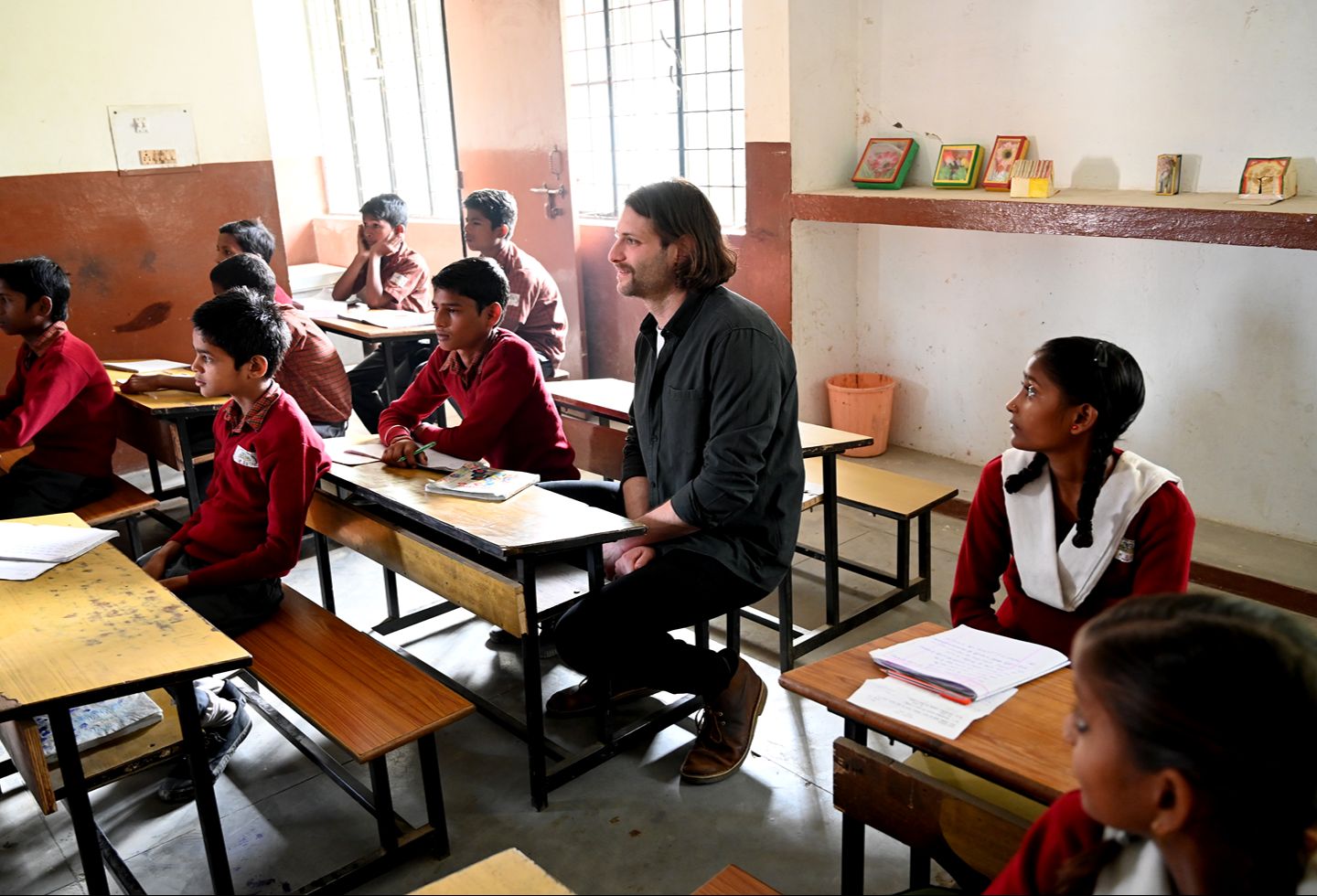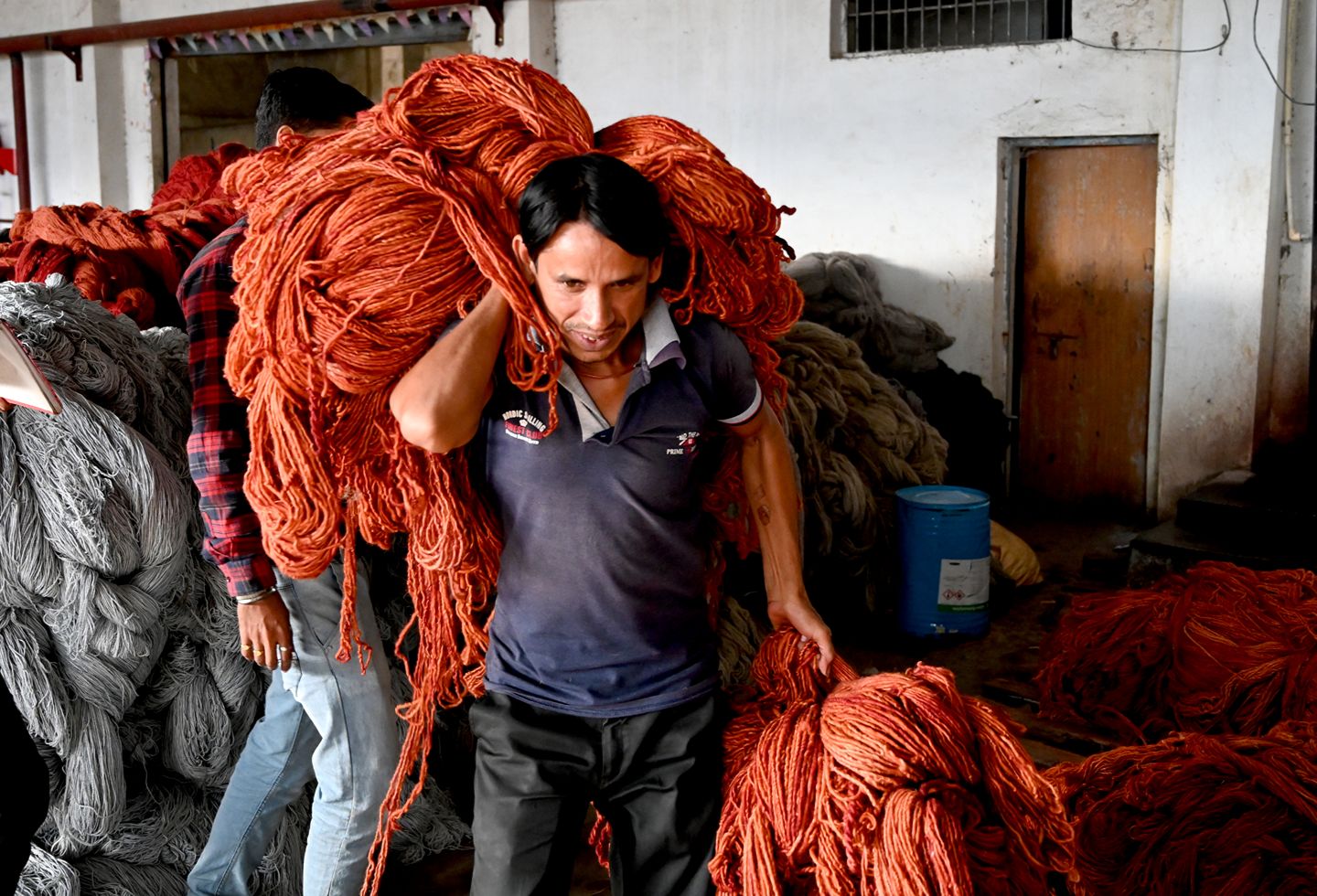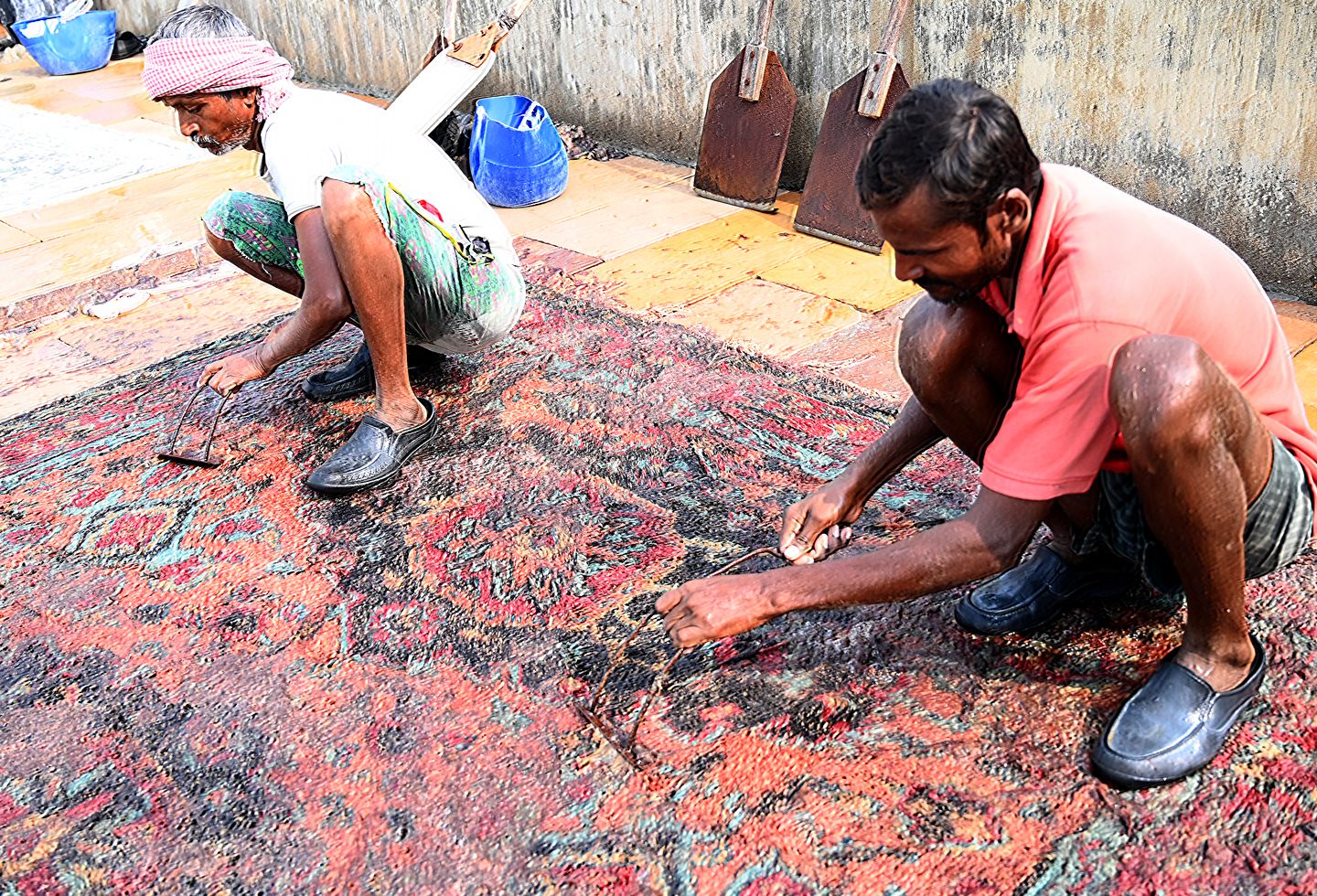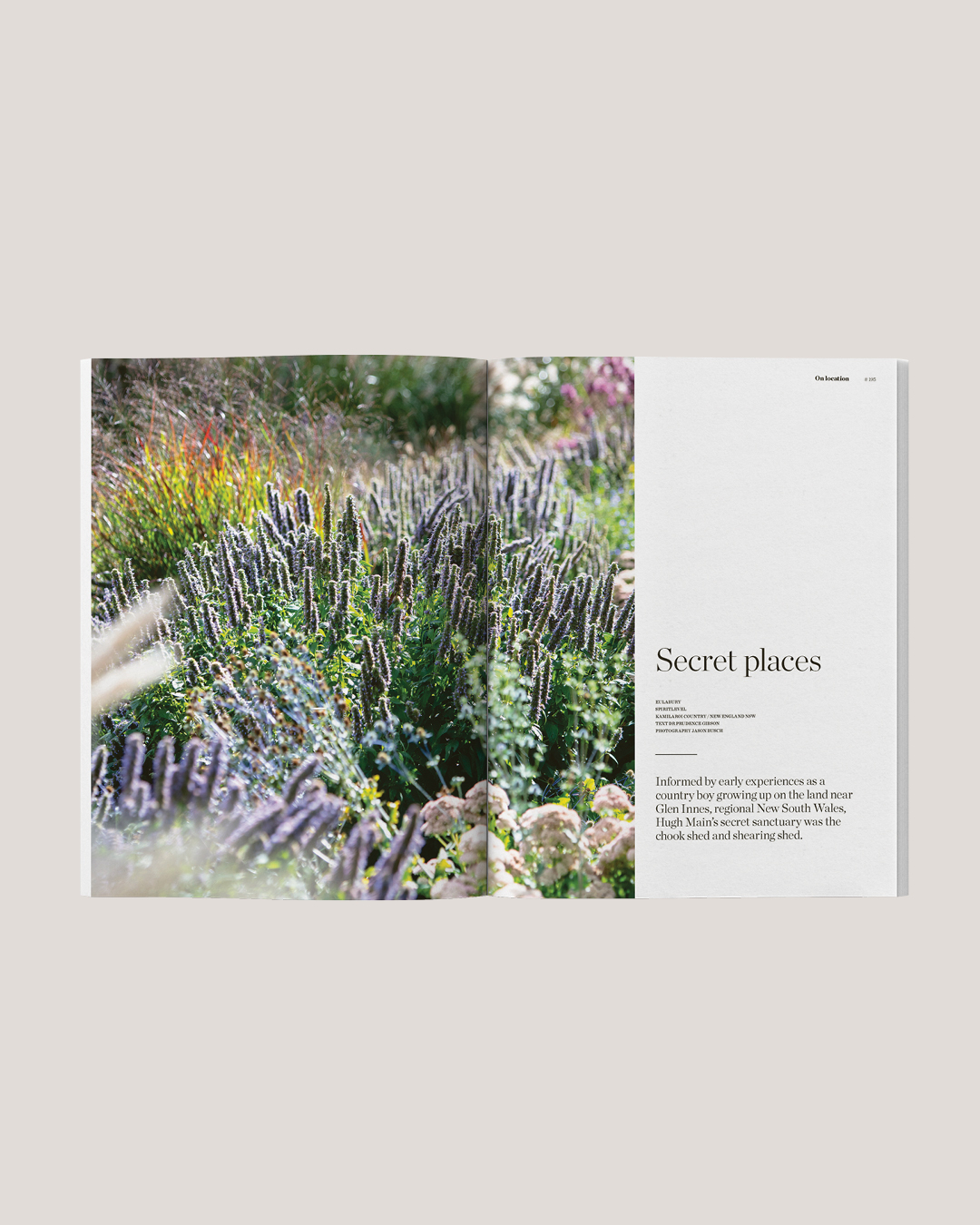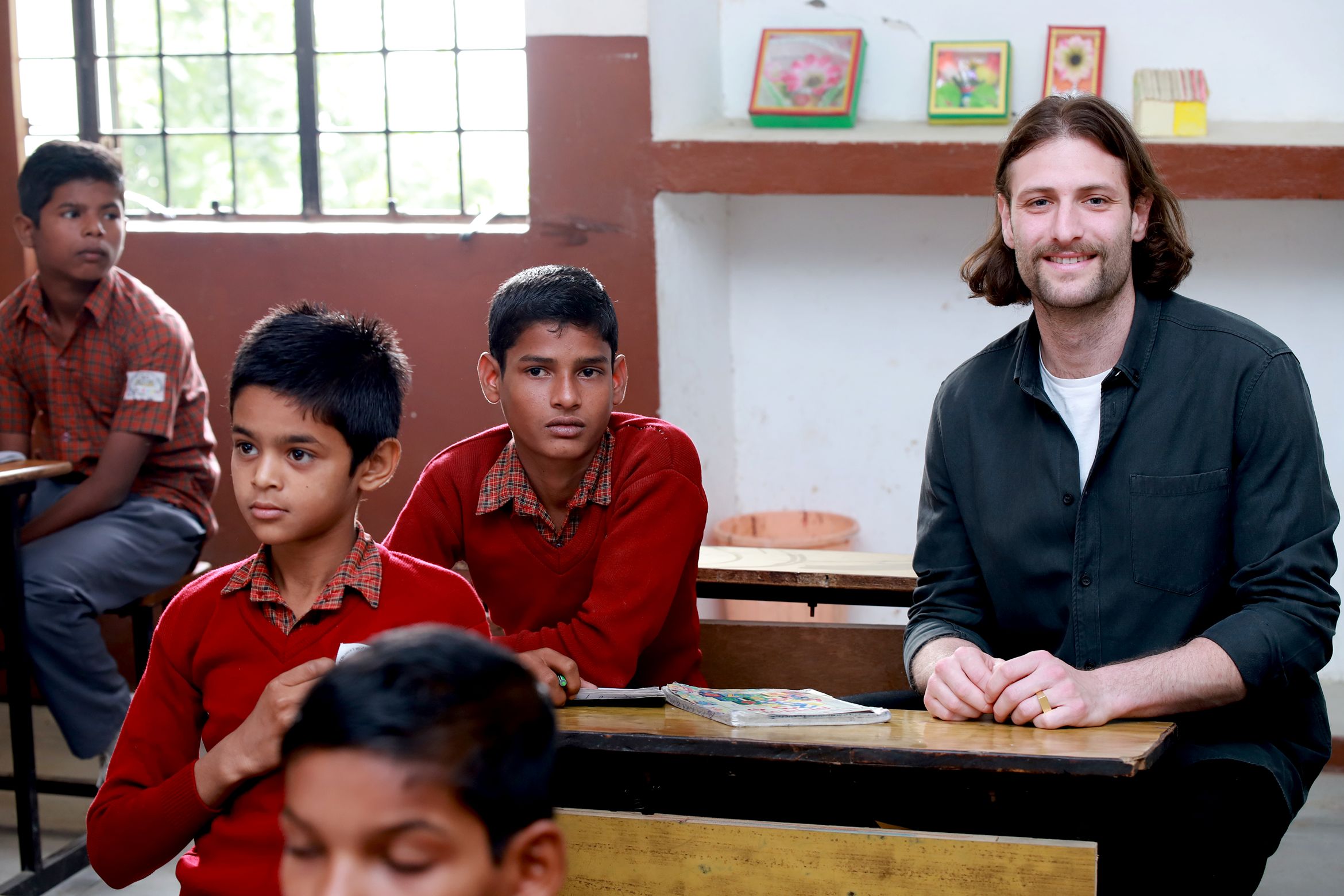Habitusliving: Can you tell us about the origins of the company – how, where and why did it begin?
Dan Swart: Hali began in 1979 in Melbourne when my father, Ian Swart, unexpectedly took over his own father’s small rug shop in South Yarra after a family tragedy. At the time, the Australian rug industry was fairly conservative. It was dominated by Persian merchants offering traditional, old-world designs, and there was very little on the market that spoke to the emerging tastes of Australian homeowners – particularly those seeking something more contemporary, colourful or personal.
My father came from a successful background in fashion, and he saw enormous potential to shake things up. He brought style, texture and modernity to the rug space, something that simply hadn’t been done before. He wasn’t bound by tradition. Instead, he had an instinctive understanding of colour and form, and he knew how to tap into what people were really looking for in their homes. Within a few months of taking over the business, he’d tripled its turnover. Soon after, he made his first trip to India. Not just to import rugs, but to find skilled artisans who could help him create something entirely new.
That first trip was the beginning of a creative journey. It blended modern design with ancient craftsmanship and brought fashion’s boldness and instinct for reinvention into the rug world. That philosophy still underpins everything we do at Hali today.

How important are the collaborations with Indian weavers?
They are absolutely foundational to what we do. Some of our closest partnerships go back 40 years, and many span more than two decades. In some cases, I’m now working with the children of the weavers and workshop owners my father first collaborated with. There is a deep trust and shared understanding that has grown over time. It is more than a business relationship, it is a creative and cultural exchange that feels like family.
These weavers are not just producing for us, they are co-creators. Together, we design exclusive rugs tailored specifically for the Australian market. From colourways and textures to design details, each collection is developed collaboratively and crafted with care. You won’t see our designs anywhere else. They are completely exclusive to Hali and reflect the distinct sensibilities of Australian interiors. Our partners understand that and respect how particular the Australian eye can be. It is what makes these relationships so special.
Related: Casa Tranquilo
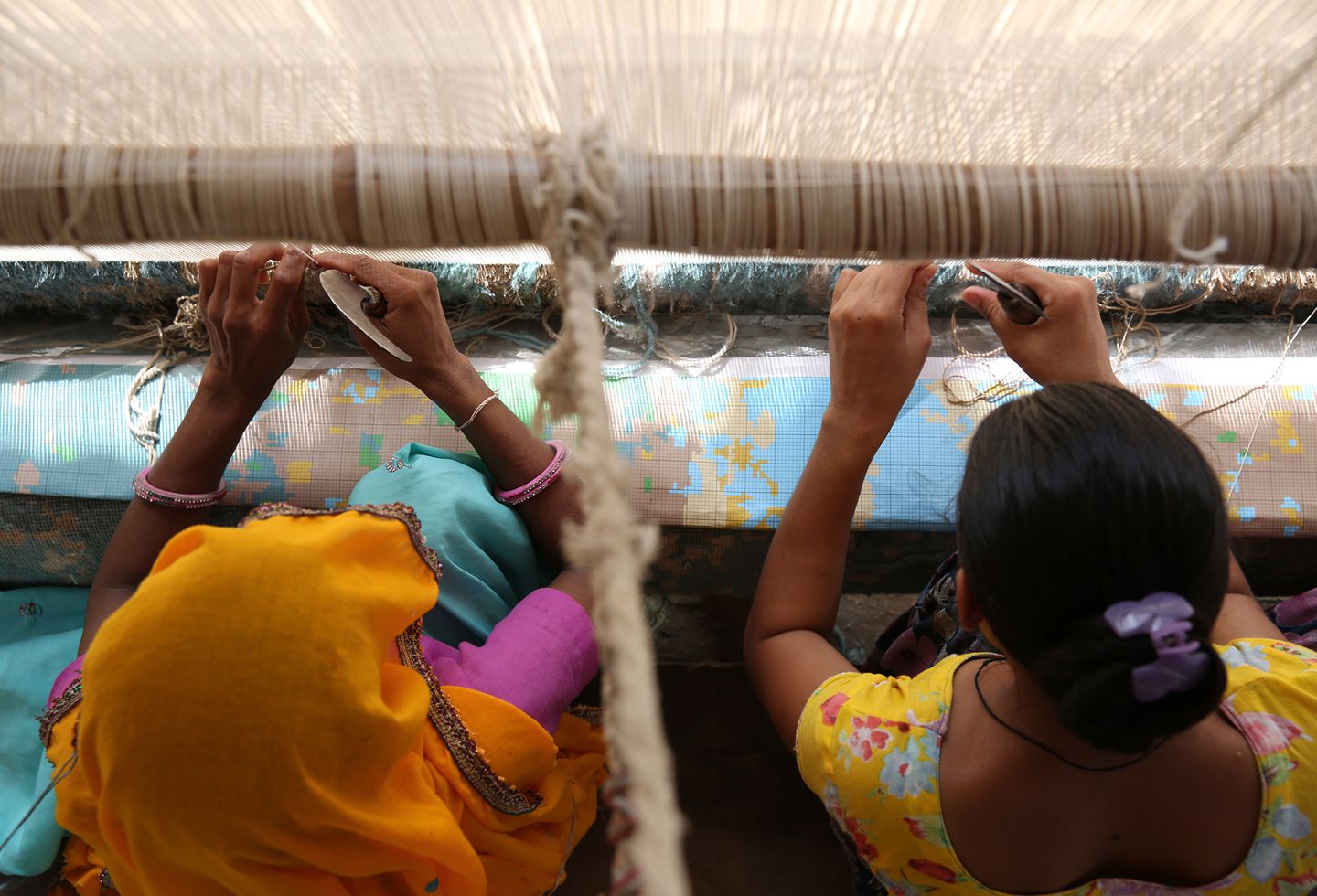
How long have these relationships been in place?
Some go all the way back to my father’s first trips to India in the early 1980s. He laid the groundwork with a handful of makers who understood his vision, and over the decades those relationships deepened. In the past ten years, I’ve had the privilege of building on that foundation by forming my own relationships with a new generation of rug creators. These are dynamic, design-savvy entrepreneurs, people who have grown up immersed in the trade but who are also pushing it forward in bold new ways.
Many of them travel the world attending trade fairs, keeping their fingers on the pulse of international design trends, and then returning to their weaving communities with fresh ideas. They collaborate with top textile designers across India and often use advanced digital tools and design software to reimagine what is possible in a handmade rug. What we are seeing now is the perfect intersection of centuries-old craftsmanship and cutting-edge creativity. The result is work that feels completely contemporary while still being grounded in tradition.
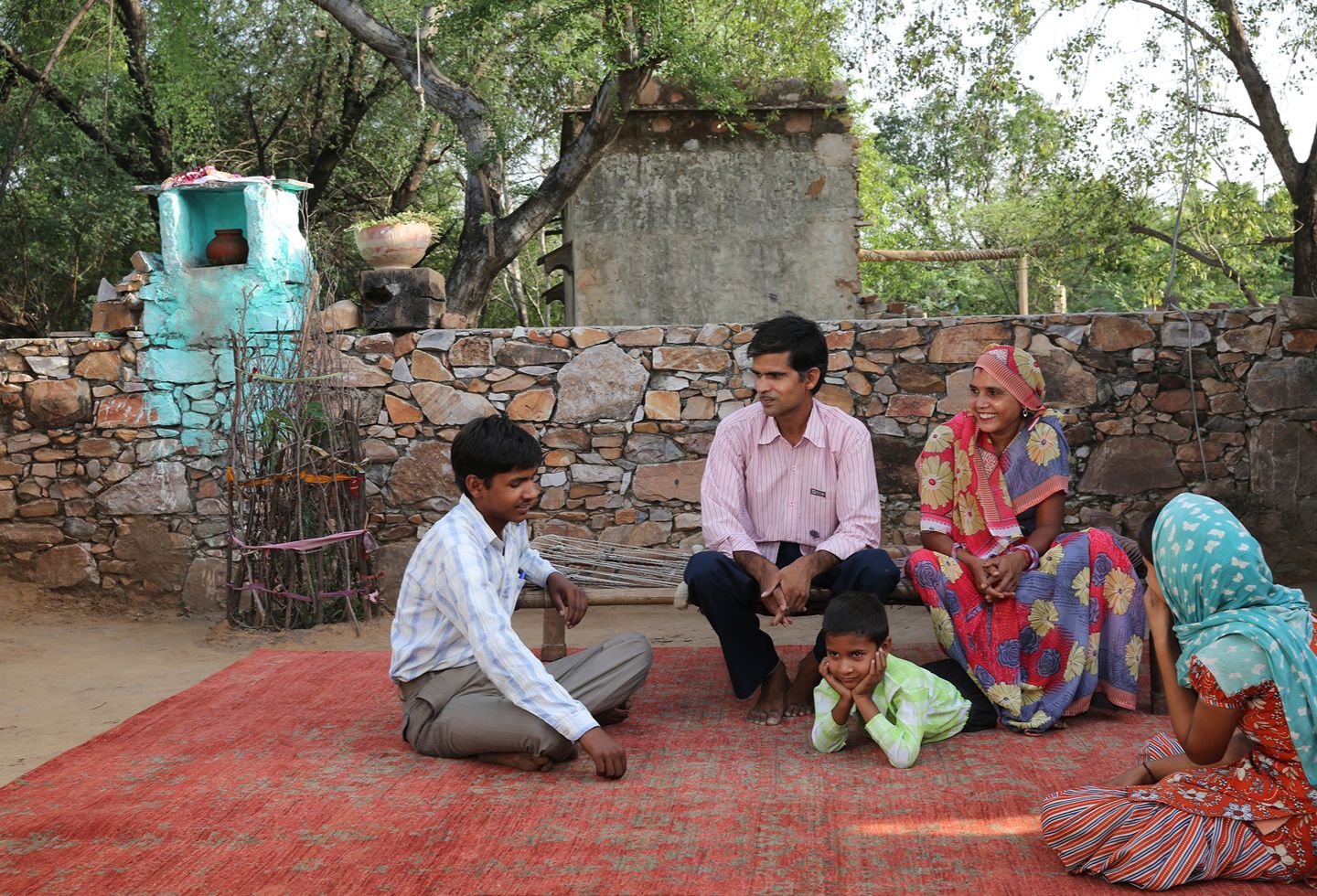
How do you ensure that local producers are treated fairly in the process?
For us, ethical sourcing is not just a box to tick. It is a fundamental part of who we are. We have been long-time members and proud donors of the Care & Fair Foundation, a global initiative that supports the wellbeing of families in weaving communities. Our contributions each year are significant and go directly toward education, health and community support. At any given time, our donations help support at least 400 children, ensuring they have access to schooling, meals and medical care.
Care & Fair also ensures that every rug we sell is made ethically, without forced or child labour. The organisation runs empowerment programs that give women opportunities to develop skills outside the home. For us, it is about respect, responsibility and long-term impact. These communities are the heart of our work, and we believe in leaving things better than we found them.
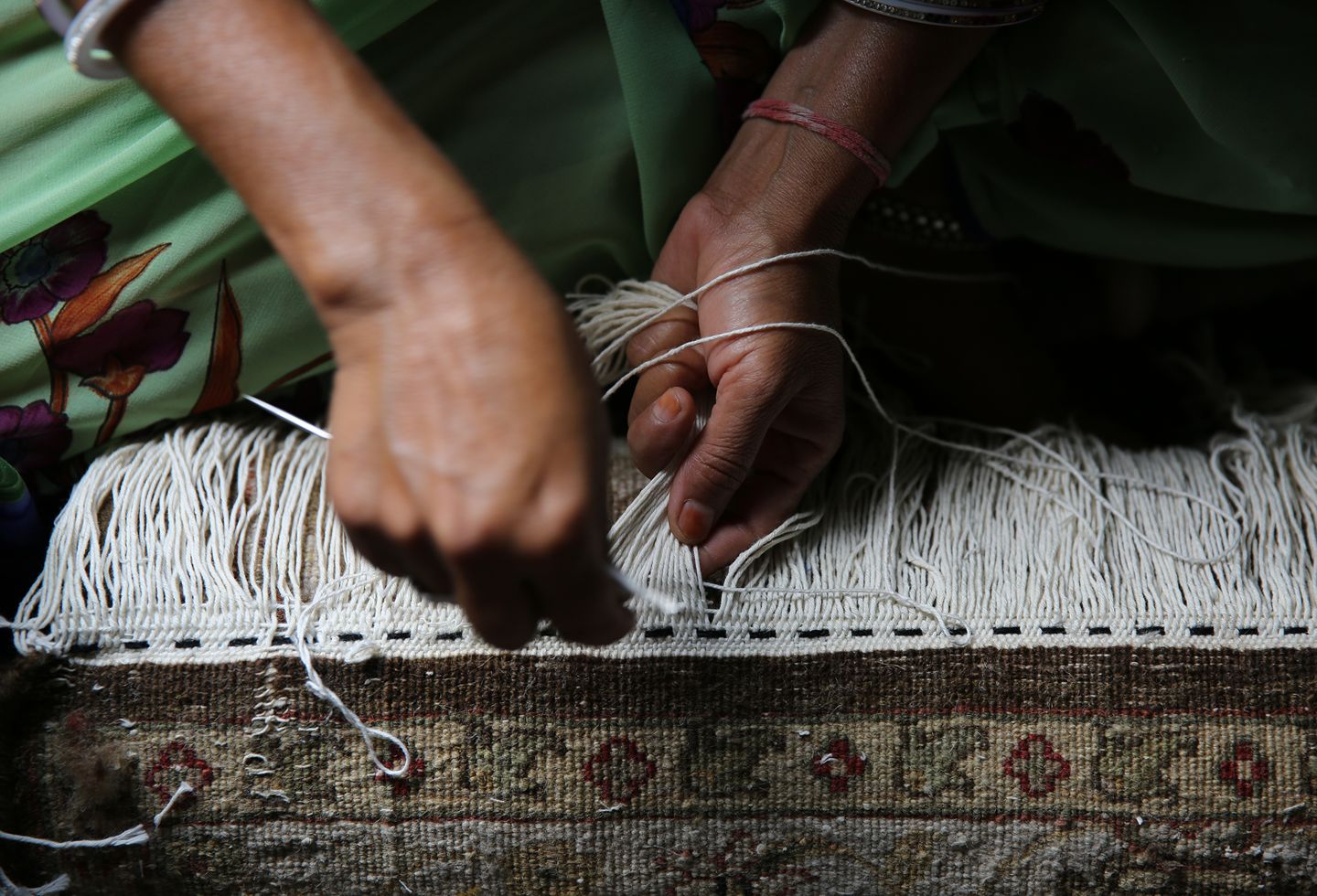
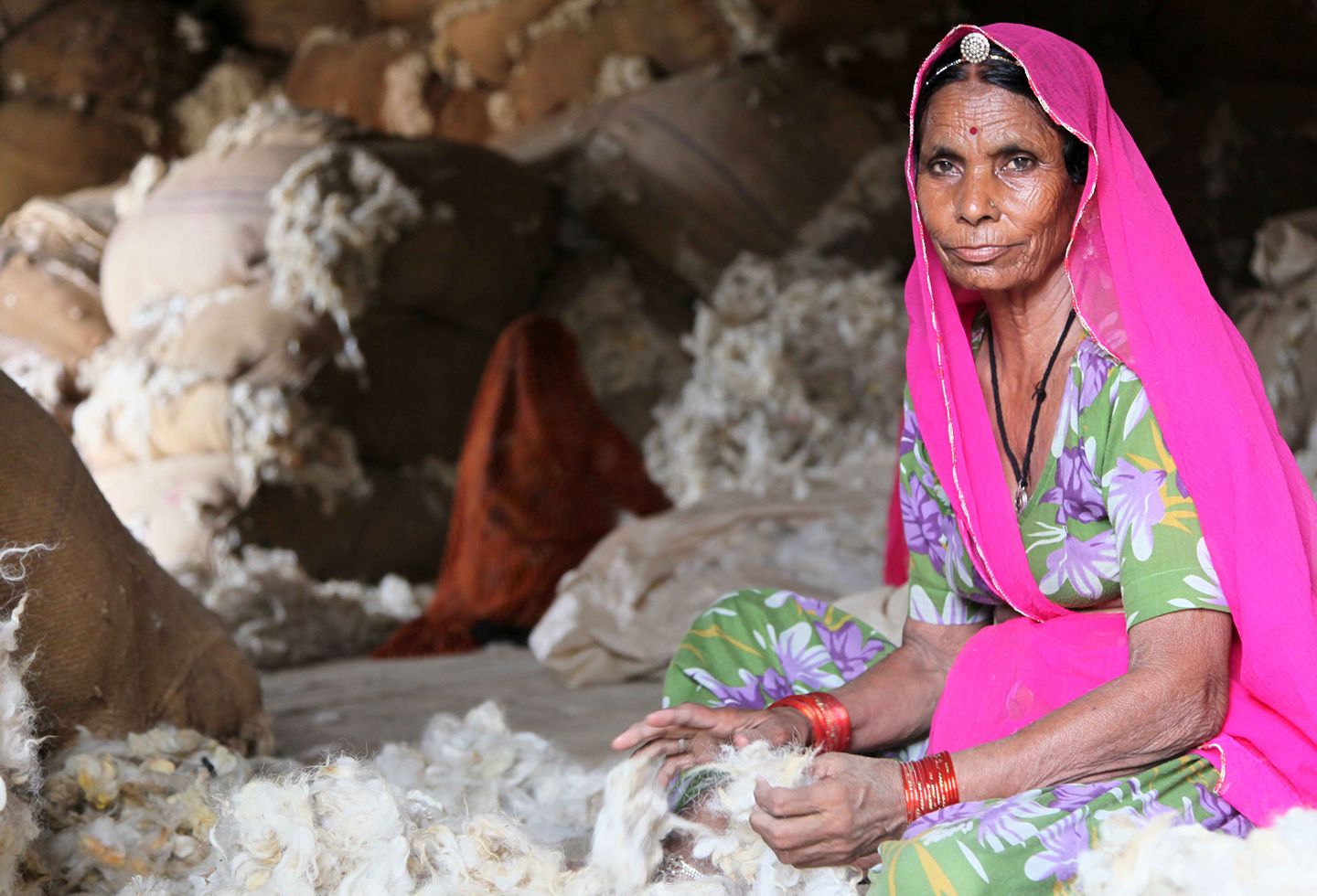
What kinds of charitable work has Hali been involved in?
In 1997, my father helped establish one of the first schools dedicated to the children of weavers in the Badoi region of Uttar Pradesh. I still remember visiting it that year. I was ten years old, and it left a lasting impression on me. Since then, education in weaving villages has remained a central focus of our charitable efforts. We believe every child deserves the chance to learn, grow and thrive, and in many of these communities, that access would not exist without outside support.
Through Care & Fair, our support goes well beyond writing a cheque. It is ongoing, practical and personal. Each year, hundreds of children are clothed, fed and educated in part because of our involvement. It is a quiet but vital part of the Hali story, ensuring that every rug we produce is not just beautiful, but carries a story of dignity, care and shared prosperity woven into every thread.
